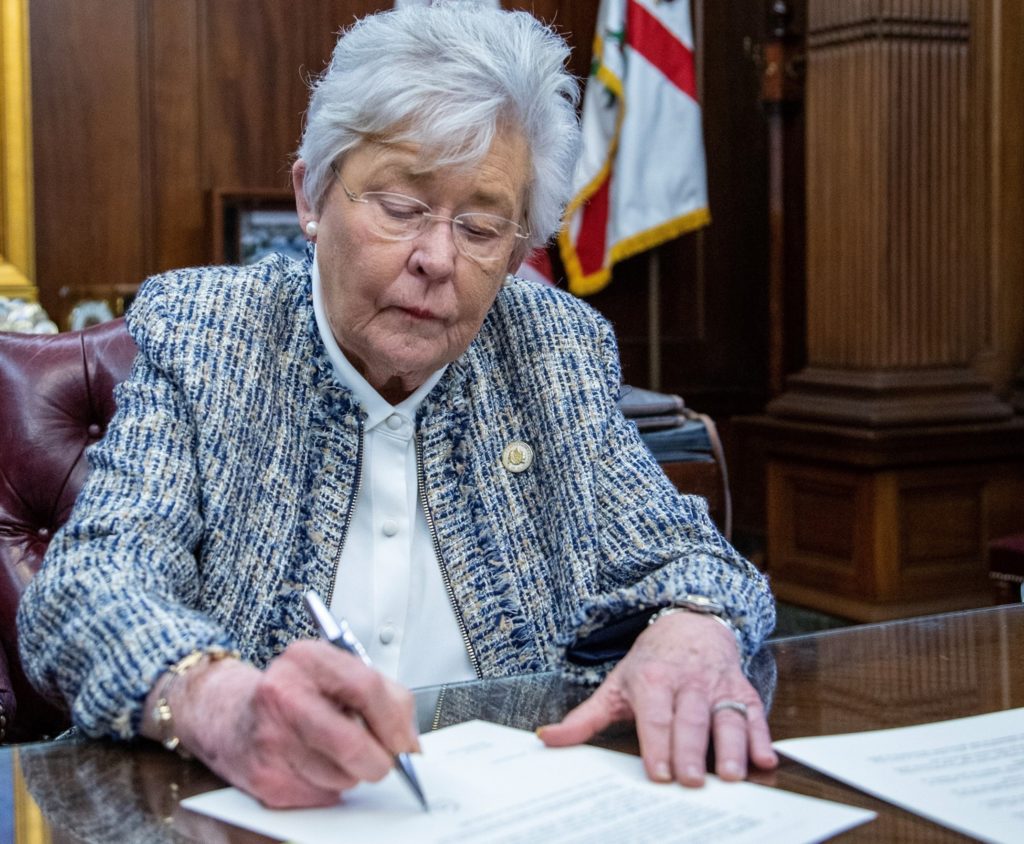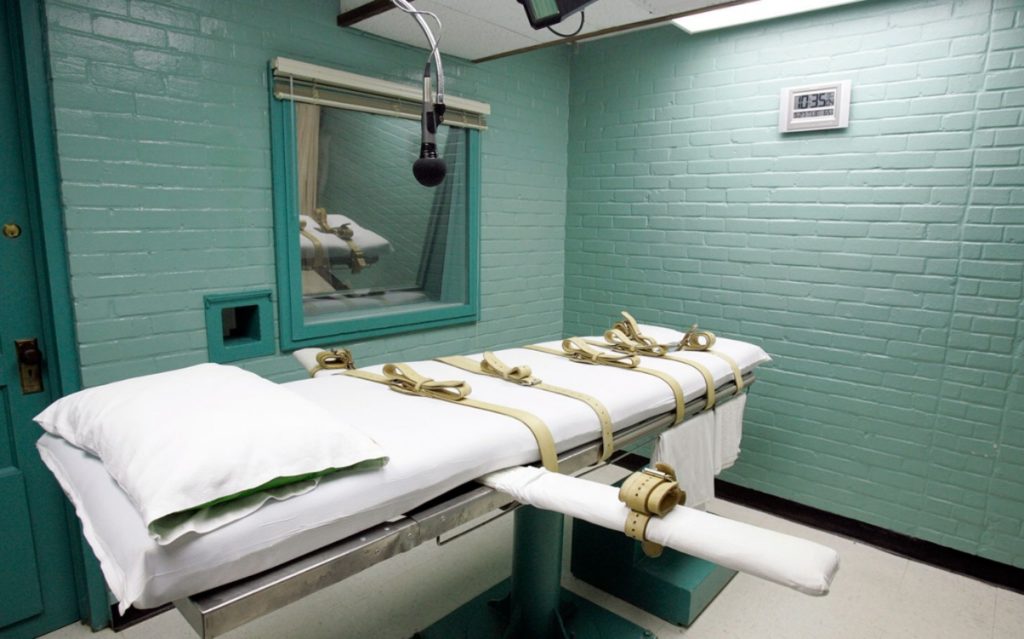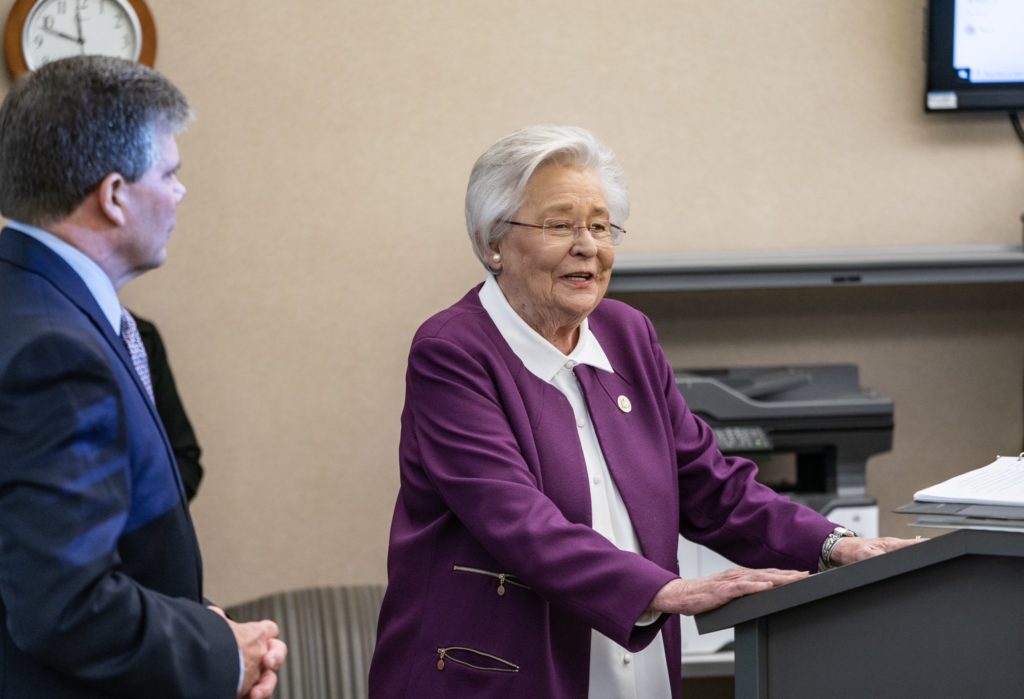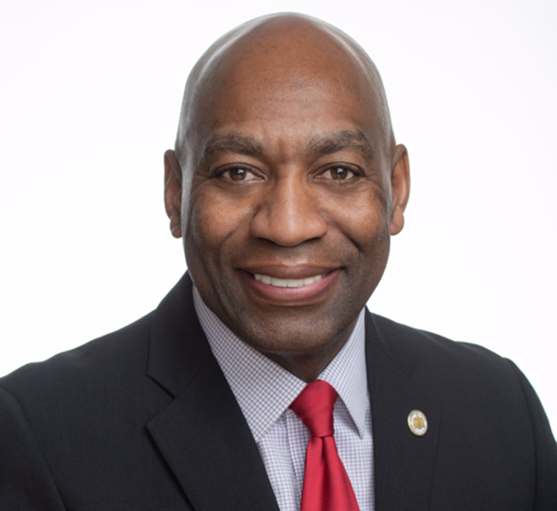Over $1 billion spent on Deepwater Horizon settlement projects in Alabama

On Friday, David Rainer with the Alabama Department of Conservation and Natural Resources reported that the Deepwater Horizon settlement has paid for over $1 billion of projects in the state. Alabama Department of Conservation and Natural Resources (ADCNR) Commissioner Chris Blankenship spoke at last weekend’s Conservation Advisory Board meeting in Huntsville to update the Board on the numerous projects in the state under ADCNR oversight. “The big takeaway is we have $1 billion, $29 million in projects underway in Mobile and Baldwin counties that we are managing through our Deepwater Horizon Section,” Commissioner Blankenship said. “That is 176 individual projects. That’s a lot of money and a lot of work going on. We have six people in that section, and they’re doing a very good job of managing projects that will make generational changes on the Gulf Coast.” Blankenship said that ADCNR’s Deepwater Horizon Restoration Coordinator, Amy Hunter, and her staff oversee the projects funded by the settlement. “We never want to go through another Deepwater Horizon event, where 11 lives were lost,” Blankenship said. “It was a terrible, terrible event for our coast. However, we’re trying to do good work with the money that came from that settlement.” Among those projects are ones to replenish and protect Alabama’s living coastal and marine resources. “That includes restoration of oysters and oyster reefs,” Blankenship said. “We’re building about $30 million in artificial reefs. We’re increasing funding for research for stranding response for marine mammals and sea turtles, conservation of bird nesting and foraging habitat, as well as construction of a wildlife rehabilitation center and sea turtle triage facility in Orange Beach.” Another funding goal is to support and enhance community resilience during environmental or economic crises. The $65 million in projects includes constructing the Auburn University Gulf Coast Engineering and Research Center in Orange Beach to improve engineering in the coastal environment. The projects include a new Alabama Department of Environmental Management (ADEM) office that is under construction on the coast. The Alabama Seafood Commission is funded, as well as Fairhope’s Working Waterfront and Green Space initiative. “Resilience is important for all of our state but particularly our coastal areas,” Blankenship said. “We’re working to make us more resilient during storms or drought or economic downturns, things that make our communities stronger when we have negative impacts in our state. As an aside, Governor [Kay] Ivey, by executive order, created a resilience council just a few weeks ago, and the Commissioner of the Department of Conservation is one of the members.” Funding will also be used to provide and enhance economic development and infrastructure. Eleven projects, totaling $197.5 million, include the construction of the Africatown Welcome Center, which will house a portion of the Clotilda. The Clotilda, discovered in the Mobile-Tensaw Delta, was the last slave ship to transport slaves from Africa to the United States. Another project that received funding was the construction of a roll-on, roll-off facility that will facilitate the export of cars and trucks that are built in Alabama. Road improvements in Baldwin County are also included in this funding. There is evidence that the Deepwater Horizon oil spill has had a long-term impact on the stability of the marshy shores of the Gulf of Mexico. A recent scientific paper presented findings that the oil has impacted marsh grass has led to the soil continuing to crumble away at a faster rate than before the spill, causing the shoreline to retreat more rapidly than it would otherwise. About $401 million is being used to restore, conserve and enhance habitat in coastal Alabama. “This is primarily land acquisition,” Commissioner Blankenship said. “So far, we have acquired more than 13,000 acres of land in coastal Alabama to protect and provide recreational access. That includes the west end of Dauphin Island, Grand Bay Savanna, Pilot Town on Fort Morgan, Gulf Highlands property on Fort Morgan, which is one of the last undeveloped areas of the beach that was not part of Fort Morgan or the Bon Secour National Wildlife Refuge. It also includes multiple parcels in Weeks Bay, parcels at Dauphin Island, Oyster Bay, and we have purchased three parcels in the Three Rivers area that we have transferred to the Bon Secour National Wildlife Refuge.” Land acquisition includes tracts along the Perdido River watershed to provide a wildlife corridor from the Perdido River Wildlife Management Area to the Lillian Swamp Forever Wild property. “We have been working for the past six years to connect those wildlife management areas,” Commissioner Blankenship said. “It will be a distinct wildlife corridor with about 50 miles of river frontage. The Deepwater Horizon exploded on April 2010, leading to the release of 200 million gallons of oil being released into the Gulf of Mexico. “When that work is done, we will have well over 30,000 acres along the Perdido River for public access, hunting, hiking, canoe trails, and river frontage from near the headwaters all the way to Perdido Bay in public ownership,” Blankenship said. “We have used more than eight different funding sources to acquire this property. This shows how working together with our divisions and the Deepwater Horizon Section has been really successful at putting all this together for the people of Alabama for perpetuity.” Another $159 million is committed to improving water quality in coastal Alabama through sewer and septic tank mitigation. “We are working with the utilities to avoid sanitary sewer overflows to improve water quality,” Commissioner Blankenship said. “Using Deepwater Horizon and GOMESA (Gulf of Mexico Energy Security Act) funding, we have done several septic to sewer conversions in the coastal areas, like Fowl River, Grand Bay, and Bayou La Batre, that are really close to the water.” The effort to provide and enhance recreation and public access will receive $147 million in funding. “During the oil spill, it wasn’t just the environment that was impacted. It was also the people,” Commissioner Blankenship said. “We lost recreational access to the beaches, fishing, and a lot of other activities. As part of the Natural Resource Damage Assessment (NRDA),
Alabama Legislature sends budgets to Gov. Kay Ivey

On Thursday, the Alabama Legislature voted to send budget appropriations bills totaling over $14.8 billion to the desk of Alabama Governor Kay Ivey. For those legislators who experienced the 2011 thru 2017 post-Great Recession budget battles, the change in dollar amounts and the tone of the budget discussions are remarkably different. Alabama has an arcane budgeting system where there is not one budget; but two – the education trust fund (ETF) and the state general fund (SGF). Education spending is in the ETF, while most non-education-related state agencies, the largest of these being Alabama Medicaid and the Alabama Department of Corrections (ADOC), are in the state general fund (SGF) budget. On Thursday, the Alabama House of Representatives passed the fiscal year 2024 education trust fund budget (ETF) of $8.8 billion. That is by far the largest in state history. The House also passed a supplemental appropriation to the F.Y. 2023 education budget of almost $2.8 billion. The biggest controversy in this whole budget debate has centered around that supplemental appropriation. A conference committee was tasked with resolving the differences between the two budgets. Both Houses voted to concur on the conference committee version of the budget late on Thursday night. The biggest difference between the Governor’s budget request, the Senate version of the education budget, and the House version is the size of the tax rebates. In her State of the State speech, Alabama Governor Kay Ivey promised Alabamians $400 checks. That would have cost $980 million, according to the Governor’s office, while the Legislature’s estimate was over $1 billion. The Senate slashed that to $105 per taxpayer. The House doubled that amount to $210 per tax filer and $420 per couple. The version that came out of conference committee around 9:30 p.m. on Thursday was reduced to $150 per tax filer and $300 per couple. Both Houses voted to concur with the conference committee version of the budget and the conference committee version of the education supplemental. Instead of funding the Governor’s tax rebates, the Legislature created a second reserve account of nearly half a billion dollars in case a future economic downturn means that future legislatures need to tap reserves. The education budget already had a fully funded rolling reserve fund that could be used to prevent proration of the education budget. This second reserve fund will give the Legislature more flexibility in responding to a slowdown in tax revenues. The Legislature also created a new grant program to fund K-12 capital projects administered by the office of the Lieutenant Governor. Sen. Arthur Orr explained that these projects will be targeted to the greatest needs statewide. Rep. Danny Garrett explained that the conference committee version of the supplemental ETF appropriation meant ~$157 million had to be reappropriated from the rebates. $75 million went to the new cash reserve, $75 million to the Lt. Governor’s grant program, and another $7 million funded various projects. Orr and Garrett are the education budget chairs for their respective houses. While all this was happening in the House of Representatives, the Alabama Senate passed its version of the general fund budget. The over $3 billion SGF is by far the largest in state history. There was also a supplemental appropriation for the SGF. A conference committee worked out the differences between the House and Senate versions of the SGF after ~11:00 p.m. on Thursday. Both Houses voted to concur with the conference committee version of the general fund. Interestingly the conference committee version of the SGF at $3,013,650,381 is several million dollars left than the version that passed out of the House and even the version that the Senate passed just hours earlier. It is still more than the Governor requested. Sen. Greg Albritton said that one of the biggest issues facing the state is the escalating costs of construction. Inflation has hit the whole economy, but nowhere more than in construction costs, and the state has several construction projects underway in both the ETF and SGF, most notably the two mega prisons being built in Elmore and Escambia Counties. One area that is not discussed in all of these budget discussions is roads and bridges. This is because the Alabama Department of Transportation (ALDOT) receives its funds not from the ETF or SGF but from the road and bridge fund that comes from fuel taxes. This allows ALDOT to avoid proration in an economic downturn like what was experienced by schools and other state agencies a decade ago, but it also means that ALDOT misses out on windfalls from boom times like what we are experiencing now. If Alabama had a one combined pot of money budget, like most state governments, it is very easy to envision a scenario where the Legislature could have appropriated a billion dollars or more to ALDOT. This would have allowed the agency to draw down another $2 billion in federal funds to address long-term infrastructure needs such as the I-10 bridge over the Mobile River, six-laning I-65, or completing the Northern Beltway in Jefferson County. This is not an option in the unique budgeting system in the state of Alabama. The budgets now go to Governor Ivey for her consideration. The Legislature will return on Wednesday for day 27 of the 2023 Alabama Regular Legislative Session. The session is limited to just thirty legislative days by the Alabama Constitution. To connect with the author of this story or to comment, email brandonmreporter@gmail.com.
Alabama House advances tax rebates of $210 per taxpayer

The Alabama House of Representatives on Thursday unanimously approved a one-time rebate that would give $210 to single people and $420 to married couples. Alabama Gov. Kay Ivey and lawmakers proposed rebates to return money to taxpayers as the state sees a rare $2.8 billion education budget surplus but have quibbled over the amount. The proposed rebates are half the amount that Ivey proposed in her State of the State address earlier this year, but double what was approved in the Alabama Senate. “This will cover 1.9 million tax filers in the state, so it’s a lot of people that will benefit from this, certainly under the House bill, a lot more significantly than they would have under the Senate version,” Republican Rep. Danny Garrett, chairman of the House education budget committee, said. Representatives voted 101-0 for the legislation that now moves to the Alabama Senate. While the bill advanced without a dissenting vote, some lawmakers argued that the money will not go to those who need it the most — people who don’t file tax returns because they earn too little or are living off retirement benefits. The rebates would only go to people who filed tax returns for 2021. “That $420 will not make a difference in my life, but for that person that may be living from day-to-day on nothing but a Social Security retirement — that $210 or $420 will make a big difference,” said Rep. A.J. McCampbell, a Democrat from Livingston. Garrett said he understood the concerns, but said the legislation is essentially a refund to people who paid taxes. House Minority Leader Anthony Daniels, D-Huntsville, said he would have preferred the state to target the rebates to the people in the most financial need. But Daniels said he is glad the House increased the size of the rebate over the Senate proposal. The rebates would cost the state an estimated $546 million. Republished with the permission of The Associated Press.
Wes Allen: HB209 prevents absentee ballot harvesting and protects each individual’s right to cast their own ballot

Over the last decade, there have been multiple convictions for absentee ballot fraud across the state of Alabama. As a Probate Judge, a legislator, and now as Secretary of State, I am committed to eliminating election fraud in our state. HB209, sponsored by Rep. Jamie Kiel, makes incredible strides in protecting the rights of Alabama voters to cast their own votes without undue influence. Currently, it is legal for groups operating as non-profits to offer payments in exchange for absentee ballot applications to Alabama registered voters. HB209 would end that. Today, it is legal for out-of-state organizations to mail pre-filled absentee ballot applications to unsuspecting voters across the state, some of whom have moved or who have no intention of voting absentee. HB209 would prohibit this practice. HB209 would make it illegal to pay or to be paid by a third party to collect absentee ballot applications or absentee ballots from Alabama voters. Furthermore, it would eliminate the ability of organizations to sow the seeds of chaos and confusion by sending pre-filled absentee applications into our state. Our elections are the foundation of our constitutional republic, and nobody should be paid for their absentee application or their ballot. Ballot harvesting should not be a job description. Rep. Kiel shepherded HB209 through the Alabama House of Representatives and through the Senate committee. Senator Garlan Gudger will present HB209 for a vote to the entire State Senate and on to Governor Kay Ivey’s desk for her signature. I applaud these two legislators for their efforts to further secure Alabama’s elections and to help protect each individual Alabama voter’s right to cast their own ballot without interference. That is, after all, the foundation of this great nation. Wes Allen is Alabama’s 54th Secretary of State. Allen is a former Pike County judge and served one term in the Alabama House of Representatives representing Pike and Dale Counties.
Alabama Senate Committee advances mandatory kindergarten bill

On Wednesday, the Alabama Senate Education Policy Committee advanced legislation requiring every Alabama six-year-old to either have completed kindergarten or pass a competency test to enter first grade. Children who fail the test will be forced to attend kindergarten rather than first grade with their peers. House Bill 43 (HB43) is sponsored by State Representative Pebblin Warren (D-Tuskegee), who has carried this legislation for the last few years. “This issue has become a really important issue in the State of Alabama,” Warren said. “It is a tragedy that we would let a child reach third grade without being able to read competently.” This is the fourth year that Warren carried similar legislation. It has not passed the Senate in the past. Governor Kay Ivey endorsed the bill in her State of the State speech. “A child can attend kindergarten or maybe in homeschooling, private schooling, or religious schooling,” Warren explained. “As long as they demonstrate competence, they can enter into first grade.” Sen. Rodger Smitherman (D-Birmingham) asked how much this would cost in the fiscal note. “$8.4 million,” Warren answered. “We are just preparing them to fail,” Smitherman said. “Requiring those little children to pass this without doing any of that is setting up these kids to fail. We know that the resources are not there .” Sen. Jay Hovey (R-Auburn) said, “I would prefer this as an opportunity to identify needs and opportunities to avoid problems later on. I would rather catch it now in kindergarten and first grade than third and fourth grade. Hovey said, “It is easier and less disruptive to fail them then than it would be in third, fourth, or fifth grade.” Smitherman said, “We haven’t provided nothing for them. You think it is alright to flunk them if they are six years old?” “I hope there is a way we can facilitate that tutoring,” Hovey said. “I hope that we can find a way to raise them up.” “How are they going to get where you want them to get without giving them any money or structure?” Smitherman said. “I am hurt that we are even considering this.” Warren said, “This is already being enacted by the state school board.” Sen. Donnie Chesteen (R-Dothan) said, “We have some questions that need to be answered. Rep. Warren.” Chesteen is the Chairman of the Senate Education Policy Committee. Sen. Kirk Hatcher (D-Montgomery) said, “My professional worth is as an educator. I am the Director of Montgomery Head Start. I would almost rather disagree with God than disagree with my mentor Senator Smitherman.” Hatcher said that if a child is six years old and doesn’t know their numbers, colors, or ABCs and can’t write their name, “they are woefully behind.” Hatcher said that if a child cannot read by the third grade, “They drop off rapidly. The numbers are startling.” “Money needs to be put in the kindergarten program,” Hatcher said, “We have got to do something.” Hatcher said that he favored funding an “at-risk program.” “I am on the side of mandating kindergarten,” Hatcher said. The Committee then entertained a motion to give HB43 a favorable report. Smitherman said, “No, with every fiber of our being.” The motion carried, and the Committee voted to advance the legislation to the full Senate. Warren said, “Thank you, and on behalf of the children of Alabama, I say thank you.” Chesteen said, “Rep. Warren, get with Sen. Smitherman before it gets to the floor (of the Senate).” The full Senate could consider HB43 as soon as Thursday. The House previously voted to pass HB43 in a vote of 87 to 12. Thursday will be day 26 of the 2023 Alabama Regular Legislative Session. The Alabama Constitution of 1901 limits the legislature to no more than 30 legislative days in the regular session. To connect with the author of this story or to comment, email brandonmreporter@gmail.com.
Steve Flowers: Women in Alabama politics

It is hard to imagine that it was only a little over 100 years ago that women were given the right to vote in the United States. The 19th Amendment to the Constitution, giving women full suffrage, was finally ratified in 1920. In recent decades, many folks have lamented that there are very few women in elected office in Alabama, especially in the legislature. We do indeed have a low percentage of female legislators, most particularly in the Republican ranks. We have some high-profile female statewide officeholders. Governor Kay Ivey, PSC President Twinkle Cavanaugh, and Supreme Court Justices Kelli Wise and Sarah Stewart, to name a few. Some of the more progressive states have ridiculed our lack of female political participants. However, history will reveal that we in Alabama were electing women to statewide offices many years before other so-called progressive states. In fact, women dominated the offices of Secretary of State, State Treasurer, and State Auditor for several decades during the 1960s and 1970s. My first observations of Alabama politics were watching women swap out the State Treasurer and Secretary of State posts every four years. In fact, these constitutional offices were considered women offices. In 1944, Governor Chauncey Sparks appointed Sybil Pool as Secretary of State. Two years later, in 1946, Pool won the office overwhelmingly and became the first woman in Alabama history to be elected to a statewide office. In that 1946 race, Pool carried 63 out of 67 counties. Four years later, in her victorious run for State Treasurer, she received the largest vote in state history. In 1954, she was elected to the first of four terms on the Public Service Commission. Prior to Pool’s first statewide victory, she had served in the legislature for two terms from her native Marengo County. She was only the second woman elected to the Alabama Legislature, in addition to being the first woman elected statewide. All-in-all, her political career included eight years as Secretary of State, four years as State Treasurer, and 16 years on the State Public Service Commission. Sibyl Pool was way ahead of her time, and she opened the political door for women to walk through in Alabama. Mary Texas Hurt Garner of Scottsboro was a lawyer by profession and an Assistant Attorney General before being elected Secretary of State in 1954. She then went on to become State Auditor in 1958. She was elected State Treasurer in 1962. Annie Laura Gunter held several prominent cabinet positions in the Wallace Administration. Afterward, Gunter was elected State Treasurer of Alabama in 1978 and served eight years in that important state office. Melba Till Allen was one of 10 children who grew up modestly on an Alabama farm. She rose to be elected as State Auditor and then was elected State Treasurer for two terms. Mabel Amos and Agnes Baggett were household names in Alabama for decades. Agnes Baggett was probably the most prominent and profiled female officeholder in state history after Sybil Pool. She served as Secretary of State from 1951-1955. She was then elected State Auditor in 1955, State Treasurer in 1959, and returned to Secretary of State in 1963. In 1967, she was elected again as State Treasurer and served eight years in this post. She finished out her career as Secretary of State, thus capping a career that made history. She served 28 consecutive years as an elected statewide officeholder, making her one of the most celebrated elected officials in Alabama history. Mabel Amos was one of the most beloved and revered women in state politics. She had an amazing career as the recording secretary for six governors, including Frank Dixon, Chauncey Sparks, James Folsom, Gordon Persons, John Patterson, and George Wallace. There is no telling what secrets and political deals Ms. Mabel knew of during this unbelievable 30-year reign inside the governor’s office. She was elected Secretary of State in 1966 and served eight years in that office. She was a native of Conecuh County and never married. Therefore, she had no direct heirs. When she died, she had a sizeable estate, primarily of family land. Because she had no children, the beloved lady left her estate with instructions that her money should be used for deserving Alabama female students who otherwise would not be able to attend Alabama colleges. See you next week. Steve Flowers is Alabama’s leading political columnist. His weekly column appears in over 60 Alabama newspapers. He served 16 years in the state legislature. Steve may be reached at www.steveflowers.us.
Governor will host a ceremonial bill signing for legislation passed during 2023 Regular Session

On Tuesday, Alabama Governor Kay Ivey will host a series of bill-signing ceremonies to celebrate the passage of several pieces of legislation that addressed concerns facing the state of Alabama. Ivey will sign several bills, including reform of the state’s adoption laws. House Bill 101 (HB 101) is sponsored by State Representative Ginny Shaver and State Senator Arthur Orr. This bill streamlines the state’s adoption process and updates the current adoption law language. (Act 2023-092). “Alabama has consistently set state records for adoptions and placed thousands of children in loving, forever homes,” said Gov. Ivey. “Currently, we have more than 5,000 children in the foster care system, and with this modernized and streamlined process now in place, we have positioned Alabama on even firmer footing and will be able to provide more of our children with the life they deserve.” House Bill 66 (HB66) by Rep. Joe Lovvorn and Sen. Andrew Jones allows certain firefighters, law enforcement officers, and correctional officers, covered under the ERS or TRS, to purchase hazardous duty time for prior service. (Act 2023-101). HB66 removes the time limitations for Tier I firefighters, law enforcement officers, and correctional officers covered under the Employees’ Retirement System or the Teachers’ Retirement System to purchase eligible service credit prior to January 1, 2003. House Bill 164 (HB164) by Rep. Andy Whitt and Sen. Jay Hovey requires high school students to complete a personal financial literacy and money management course before graduation. (Act 2023-179). “I have got story after story from thirty years of banking experience of young people who did not have a checking account,” said Whitt. “They go to convenience stores and check cashing places to get their paychecks cashed. One young fellow was working two hours a week just to be able to get his check cashed each week.” Senate Bill 131 (SB 131) by Sen. Vivian Figures and Rep. Steve Clouse. This bill transfers the regulation of preneed funeral contracts from the Department of Insurance to the Alabama Board of Funeral Services. (Act 2023-094). The Alabama Preneed Funeral and Cemetery Act of 2023 transfers the existing Preneed Funeral and Cemetery Act and the regulation of preneed contracts from the Commissioner and Department of Insurance to the Alabama Board of Funeral Service. It authorizes the Department of Insurance to temporarily transfer certain funds to the board to defray costs associated with the administration and operation of the Alabama Preneed Funeral and Cemetery Act of 2023; Senate Bill 28 (SB28) by Sen. Tim Melson and Rep. Randy Wood would expand the scope of practice of podiatry to include treatment of the foot and ankle. (Act 2023-106). Podiatrists in most states are already allowed to treat disorders of the ankle. This expansion of the scope of practice to come in line with national standards was long overdue. Senate Bill 104 (SB 104) by Sen. Chris Elliott and Rep. David Faulkner revises the current Dram Shop Act by addressing liability for providers of alcohol if a recipient injures a third party. (Act 2023-025) . Before this, only three insurance carriers would insure restaurants and bars from lawsuits due to the liability. This will make it harder for plaintiffs’ attorneys to prove a case against the establishment that sold the alcohol. House Bill 56 (HB56) by Rep. Frances Holk-Jones and Sen. Linda Coleman-Madison will expand the scope of practice for licensees of the Alabama Board of Social Work Examiners. (Act 2023-100). This will allow specially trained social workers with master’s degrees to diagnose mental illnesses. House Bill 62 (HB 62) by Rep. Ben Robbins and Sen. Keith Kelley will extend the amount of time that nonprofit veterans’ organizations have to comply with state and local building codes when acquiring a former armory building. (Act 2023-175). This bill primarily deals with an armory in Sylacauga owned by the American Legion and used by the Alabama National Guard. When the National Guard shut down its presence, it transferred back to the American Legion. The NG never updated the building during its tenure, so it lacks the sprinkler system needed to comply with state building code requirements. Tuesday will be day 24 of the 2023 Alabama Regular Legislative session. Kay Ivey has been governor since 2017. To connect with the author of this story or to comment, email brandonmreporter@gmail.com.
State sets new record low unemployment rate of 2.2%

On Friday, Alabama Governor Kay Ivey announced today that Alabama’s preliminary, seasonally adjusted April unemployment rate is 2.2%. This is down from the previous record low rate of 2.3% in March and below April 2022’s rate of 2.5%. 51,462 people were unemployed in April – down from 53,017 in March and 57,712 in April 2022. “Yet again, we see the resiliency of our state’s workforce,” said Gov. Ivey. “When Alabama works, Alabama families thrive, and records are broken time and time again,” said Governor Ivey. “We have a quick growing economy, and we are leading the game when it comes to economic success. Boasting the lowest unemployment rate in the Southeast, Alabama is well on its way to having the lowest unemployment rate in the nation.” 3,367 Alabamians joined the workforce in April, raising the total to 2,293,022. The number of people counted as employed reached a new record high, grew 4,922 to 2,241,560. “Continuing this positive trend, Alabama’s employers added more than 40,000 jobs over the last year, reaching the third highest jobs count in history,” said Alabama Department of Labor Secretary Fitzgerald Washington. “Wages have yet again set a new record high, rising by more than $30 a week since last month alone. More money in the pockets of Alabamians is always a good thing.” During the last year, wage and salary employment increased by 40,800 to 2,143,700, with gains in the private education and health services sector (+8,000), the government sector (+6,300), and the professional and business services sector (+6,100), among others. Over the month, wage and salary employment increased in April by 7,900. Monthly gains were seen in the leisure and hospitality sector (+3,800), the financial activities sector (+1,700), and the private education and health services sector (+1,300), among others. “Comparatively, Alabama had the lowest jobless rate in the southeast for all 12 months in 2022, further evidence that our state is a wonderful place to live, to work, and to succeed,” Washington wrote. “And nationally, we ranked an impressive 7th lowest unemployment rate with a 2.6 percent annual average, compared to the 3.6 percent for the nation. That’s really quite a feat and definitely something to be proud of.” Wages continued to climb. Total private average weekly wages reached a new record high in April of $1,023.12. This is up $31.02 over the month and up $27.68 over the year. The trade, transportation, and utilities sector and the financial activities sectors both hit new record-high weekly wages, rising to $835.56 and $1,305.68, respectively. The Alabama counties with the lowest unemployment rates are Shelby County at 1.3%, Morgan, Marshall, Madison, and Cullman Counties at 1.4%, and St. Clair, Limestone, Lawrence, Elmore, and Blount Counties at 1.5%. The counties with the highest unemployment rates are Wilcox County at 6.0%, Greene County at 4.0%, and Clarke County at 3.7%. The major cities with the lowest unemployment rates are Alabaster, Madison, Trussville, and Vestavia Hills at 1.2%, Homewood, Hoover, and Northport at 1.3%, and Athens at 1.4%. The major cities with the highest unemployment rates are Selma at 4.5%, Prichard at 3.2%, and Bessemer and Gadsden at 2.5%. Nationally, the U.S. unemployment rate dropped from 3.5% in March to 3.4% in April and down from 3.6% a year ago. The Alabama labor participation rate improved slightly to 56.8% from 56.7% in March. However, it is still below the 57.2% rate a year ago and well below the national labor force participation rate of 62.6%. To connect with the author of this story or to comment, email brandonmreporter@gmail.com.
Steve Flowers: Lurleen Wallace

Kay Ivey is Alabama’s second female governor. Lurleen Wallace was the first. Appropriately, Kay Ivey’s idol and impetus for striving to be governor was Lurleen Wallace. Kay’s first involvement in state politics was as a campaign worker for Governor Lurleen’s 1966 race for governor when Kay Ivey was a student at Auburn. It was 55 years ago, in May 1968, that our first female governor, Lurleen Wallace, passed away. She was a genuinely humble person. Lurleen Wallace was very popular. The state fell in love with her. She was not only beloved, she was also a good governor for the 18 months she served before she succumbed to cancer. Her husband, George Wallace, was first elected governor in 1962. He had ridden the race issue to the governorship and had made segregation the hallmark issue of his first four years. He had become the paramount king of segregation in the nation. He was very popular. However, he was forbidden by the Alabama Constitution from seeking a second, consecutive term. The idea of George Wallace running his wife Lurleen as his proxy had been tossed out by a few of his cronies as a joke. After a few weeks, the idea grew on Wallace. He made calls around the state and began to realize that dog might hunt. George and Lurleen met when he was a 22-year-old law student at the University of Alabama. He met her at a dime store in Tuscaloosa where she was a 16-year-old clerk. She was born and raised in Northport. They soon thereafter got married. Wallace’s life and devotion were to politics and being governor of Alabama. Lurleen was content to be a behind-the-scenes mother. George’s passion was politics. Lurleen’s passion was being a mother and going fishing. Lurleen was a genuinely sweet lady. Her humble background as a dime store clerk in Northport endeared her to Alabamians. She was gracious and sincere, and people fell in love with her. Lurleen had been diagnosed with cancer two years prior to the 1966 election. Although it seemed to be in remission, her health was not excellent. The campaigning was a challenge to her. She did not cherish the spotlight like George. Instead, she preferred her quiet time. She had been a mother and father to four children. However, after Lurleen agreed to run, it seemed to grow on her. She was a quick study. She got better day after day. As the crowds grew, you could feel the momentum and surge in popularity. She seemed to thrill to it. Lurleen’s landslide victory in May of 1966 was astonishing. She set records for vote-getting, some of which still stand today. She defeated nine male opponents without a runoff. Left in the carnage was an illustrious field of proven veteran political men. Included in the field she demolished were sitting Alabama General Richmond Flowers, Jasper Congressman Carl Elliott, State Senator Bob Gilchrist, Dothan businessman Charles Woods, two former governors John Patterson and Big Jim Folsom, popular state Agriculture Commissioner A.W. Todd, and of course Shorty Price. She then went on to trounce the most popular Republican in the state, Republican Congressman Jim Martin, by a two-to-one margin. Lurleen Wallace became Governor in January of 1967. She warmed to the job and made a very good governor. She let George know that she was Governor. However, she lived less than two years after she took office. Soon after her Inauguration, she visited the state’s mental hospital in her native Tuscaloosa County. She was so moved by the deplorable conditions that she made it her mission to improve the mental health facilities in the state. She gave one of the most moving speeches ever delivered before a legislature that resulted in the passage of a major bond issue to support mental health. Lurleen was also instrumental in the creation of a major cancer center at UAB. It came to pass after her death. She became beloved by Alabamians. She showed amazing grace and courage as she battled against cancer. When she died, the outpouring of sympathy from the people of the state was unparalleled. Thousands of Alabamians filed by her casket in the Capitol Rotunda. Schools let out, and school children came to Montgomery from all over the state to pay their respects to our Lady Governor. See you next week. Steve Flowers is Alabama’s leading political columnist. His weekly column appears in over 60 Alabama newspapers. Steve served 16 years in the state legislature. He may be reached at www.steveflowers.us.
U.S. Supreme Court sides with Alabama inmate who seeks to die by nitrogen hypoxia

The U.S. Supreme Court on Monday sided with an Alabama death row inmate, who had his lethal injection called off at the last minute in November, and argues he should be put to death by nitrogen hypoxia when he is ultimately executed. Justices, without comment, rejected the Alabama attorney general’s request to review an 11th U.S. Circuit Court of Appeals decision regarding inmate Kenneth Eugene Smith. The state argued the decision disregarded Supreme Court precedent that an inmate challenging an execution method must show that an alternative method is readily available, not just feasible. Alabama has authorized nitrogen hypoxia — death as a result of breathing pure nitrogen — as an execution method, but no state has attempted to use the untested method to put an inmate to death. Smith was scheduled to be put to death by lethal injection on Nov. 17, 2022, for the 1988 murder-for-hire slaying of a preacher’s wife. On the day of the execution, a divided 11th Circuit panel stayed the execution after Smith raised concerns about previous lethal injections in the state and suggested nitrogen hypoxia as an available alternative method. The Supreme Court disagreed and lifted the stay. However, prison officials ended up calling off Smith’s execution for the night after staff were unable to find a suitable vein to connect the second of two intravenous lines to Smith’s body. Justices Clarence Thomas and Samuel Alito dissented from the Supreme Court’s opinion, saying they would hear the case. “The Eleventh Circuit’s error is not only plain but also serious enough to warrant correction,” Thomas wrote in a dissent. Alabama Gov. Kay Ivey in November announced a pause in executions to conduct an internal review of procedures. The review came after problems with intravenous lines caused multiple executions to be canceled or delayed. The state is seeking to resume executions this summer. Attorneys for Smith have claimed his November execution attempt was botched. Smith has an ongoing lawsuit seeking to prevent the state from making a second attempt to execute him by lethal injection. “To subject Mr. Smith to a second execution by lethal injection would subject him to a torturous experience of unnecessary physical and psychological pain, as has been established through Alabama’s last three execution attempts,” Smith’s lawyers wrote in a December court filing. Prosecutors said Smith was one of two men who were each paid $1,000 to kill Elizabeth Sennett on behalf of her husband, who was deeply in debt and wanted to collect on insurance. The slaying, and the revelations over who was behind it, rocked the small north Alabama community. Republished with the permission of The Associated Press.
Kay Ivey extolls economic and legislative success in Tuscaloosa

Alabama Governor Kay Ivey spoke to the West Chamber of Commerce on Monday in Tuscaloosa. The governor emphasized her economic policies and her plans to improve Alabama’s public education. Ivey thanked Terri and Coach Nick Saban for their patronage of the Saban Center and said she looked forward to returning to Tuscaloosa for the ribbon cutting. Ivey said the Saban Center would have a lasting positive impact on education in Alabama. “I am so grateful to her and Coach Saban for their commitment to education in the state,” Ivey said. Ivey extolled the current economic conditions. Ivey said Alabama workers have “opportunities not seen in many generations.” “Alabama is experiencing record surpluses in both our educational and general funds to address our state’s needs,” Ivey stated Ivey said that the top priorities for this session and her second term are increases and renewal of economic incentives and improvements in education. Ivey said that with her economic incentives, the state “will need to double down over the next four years to make a lasting difference. Our state’s industrial scouts have brought home many recruits.” “$42 billion in economic investments has already netted an additional 78,000 new jobs,” Ivey said. Ivey said her new economic plan is “The game plan.” It involves renewing the state’s primary economic incentives for another five years. “That is key for economic stability,” Ivey stated. Ivey said her game plan legislation “sailed through the Alabama Legislature with bipartisan success.” “Today, over two million people are employed in the state of Alabama,” Ivey said. “That is the most in state history.” Ivey said the state has “a record low of 2.3% unemployment -the lowest unemployment ever.” “The media asks how are you going to find workers to fill those new jobs. The media takes two positives and turn them into a negative,” Ivey said. The governor explained that her road plan four years ago had already resulted in $370 million for 234 projects that are underway or already completed. Ivey said one of these is the West Alabama corridor, which will be an improved land route to the port of Mobile and “make it easier to get to see Alabama on game day.” The governor said that her widening and deepening of the shipping channel in Mobile would be completed in the next two years. “Increasing broadband access throughout all of Alabama has been a huge priority of mine and will continue over the next four years,” Ivey said. The state has committed over $300 million to broadband projects. Ivey said, “Building a top-notch education system in top thirty states in educational advancement is a goal by the end of my term.” Ivey said that first-class Pre-K expansion was necessary so every child who wants it can access it. Ivey said that children who have been through pre-K are more likely to perform well in kindergarten, are less likely to be chronically absent, less likely to be in special education, and less likely to be behavioral problems. Ivey said that she is, focusing on the building blocks of education: Reading and Math. “We will no longer tolerate the existence of failing schools in our state,” Gov. Ivey said. “I am supporting increased funding for more reading and math coaches.” State Rep. Kyle South is the incoming President and CEO of the West Alabama Chamber of Commerce. “I wish Kyle South all the best in his move from the state house to the West Alabama chamber.” South said that the position allows him to put his business experience and his policy experience together to give back to the community. To connect with the author of this story or to comment, email brandonmreporter@gmail.com.
Fitzgerald Washington: Economic Op-Ed 2023

If you followed state news in 2022, you would have seen dozens of stories about Alabama’s successful economy. Nearly every month, we at the Alabama Department of Labor were announcing some sort of economic record. In fact, the amount of positive economic news may have also been a record. While I am extremely proud of the progress our state has made on the job front, I also know that our gains are the result of a world-class workforce in Alabama and a steady focus on attracting and keeping employers. I’d like to congratulate every state leader, agency, official, and worker who played a role. Governor Kay Ivey and her administration are committed to continuous improvement and economic growth, and we are happy to deliver. Looking back, it’s worth noting another 2022 milestone: Alabama broke all six major economic records. This is a truly remarkable feat following the economic uncertainty that still plagues this country following the COVID-19 pandemic. More people than ever before – 2.29 million, to be exact – were in Alabama’s labor force last year. That means that a record number of Alabamians are either working or wanting to work, and they believe that the economy is strong enough for them to find a job. Of those, 97.5 percent were employed – also a new record high! That works out to a record-low unemployment rate of 2.5 percent (in March, April, and May 2022, following annual revisions). Comparatively, Alabama had the lowest jobless rate in the southeast for all 12 months in 2022, further evidence that our state is a wonderful place to live, to work, and to succeed. And nationally, we ranked an impressive 7th lowest unemployment rate with a 2.6 percent annual average, compared to the 3.6 percent for the nation. That’s really quite a feat and definitely something to be proud of. Employers in Alabama supported a record-high number of jobs, surpassing our previous pre-pandemic record and surging to more than 2.1 million in November. From January 2022 to December 2022, Alabama gained an amazing 81,100 jobs! And those jobs were backed up by record-high wages, as well. Workers in Alabama brought home nearly $68 more per week in 2022 than in 2021. Weekly wages hit a record high of $1,019.66 in October. Several industries saw record-high wages as well. Construction, trade, transportation and utilities, leisure and hospitality, and other services all experienced significant gains. The leisure and hospitality industry, which, as we all know, was hit the hardest during the pandemic, continued its historical surge, with weekly wages increasing by $56. Additionally, for the first time since 1997, our state Unemployment Insurance Trust Fund moved into the lowest tax schedule, Schedule A, in 2022. This means employers are paying less unemployment insurance taxes than ever before – equating to a 54 percent tax cut for most employers. Lower taxes give our employers more freedom to hire more people and create more jobs. Our Career Centers, which now touch all 67 counties in the state, helped more than 90,000 new jobseekers last year, logging nearly a quarter of a million customer visits. Of those that we helped place in a new job, 71 percent were still employed a year later. Our Career Centers offer a variety of free services to both jobseekers and employers alike, and in today’s job market, they are more valuable than ever. Employers who are struggling to find employees need to visit their local Career Center and take advantage of the services. Not only do we offer recruiting assistance, but we have programs that can even help pay new employees’ salaries – up to 50 percent! Jobseekers looking to train for new opportunities, earn a degree or certification, or simply need help updating their résumé should visit too! We can help with tuition assistance, on-the-job training, or apprenticeship programs. Alabama has rebounded, and things are looking great for the future. It’s my fervent hope that we can continue to sustain this amazing progress and make this state an even better place to live and work. Our workforce is truly one of a kind – dedicated and hard-working, resilient and innovative. I applaud all of our workers and employers on a truly remarkable year. Fitzgerald Washington has been the Alabama Department of Labor Secretary since 2014.


